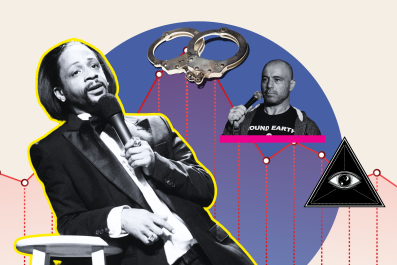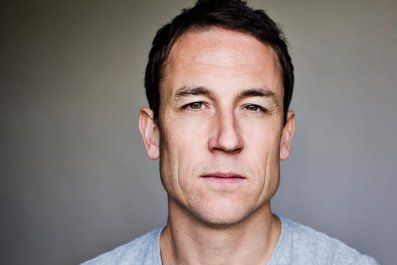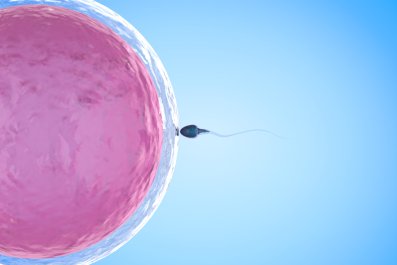Single mothers by choice and LGBTQ+ couples are increasingly finding that traditional sperm banks aren't fulfilling their needs. They are turning to the unregulated sperm market to get to know the men donating sperm to enable them to become a family. Investigative journalist Valerie Bauman wanted to become a mother herself. As she began her journey, she found that a donor she could meet made the most sense for her. She also realized that this was a large and growing trend and that it was worth exploring in a professional, not just personal, capacity. Her new book, Inconceivable: Super Sperm Donors, Off-the-Grid Insemination, and Unconventional Family Planning is a deep dive into the world of freelance sperm donors, how it works and the advantages and drawbacks. In this Q&A, Bauman discusses some of the pitfalls, how it affects the children born this way and why it is the right call for many women.
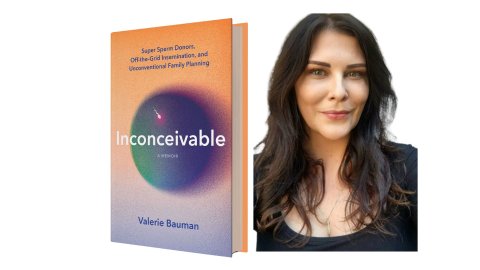
Q _ Were you ultimately successful in your quest to conceive?
A _ I am currently pregnant, due in mid-May. I can't wait to meet my son!
Is there anything you would have done differently along the way?
There is a donor I mention in the book who I worked with that I call "The Conquistador." We attempted to have a romantic relationship while also trying to get me pregnant. I regret that situation.
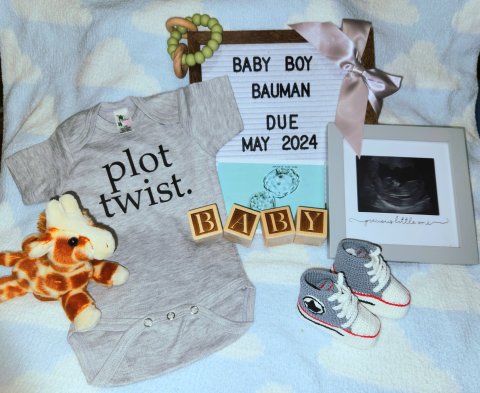
You lay out many pitfalls in trying to conceive in the unregulated market. How can would-be parents avoid getting burned?
The key is taking your time to vet potential donors properly and establishing some trust. Unlike a sperm bank, you have the opportunity to truly get to know the person who is donating half the DNA that will create your child. Take advantage of that and don't rush that process.
Additionally, I often see people focusing only on a donor's physical attributes and seeking donor anonymity. They may just want to have sperm shipped to them, or even meet a donor at a roadside motel without ever exchanging real names. That's not a healthy decision for the recipient or the donor-conceived child. That's how you wind up with a donor who has severe psychological issues that could be passed on to your child.
In other cases, those recipients will find their donor trying to coerce them into performing sex acts. Unfortunately, some women will submit to those pressures out of desperation to get pregnant. Consider—what if your child tracks down this donor one day through a consumer DNA site. Would you really want your kid to develop a relationship with someone that disgusting? The world of freelance sperm contains many creeps who are just trying to get laid. It also contains men with a breeding fetish who want to see their DNA spread far and wide—without regard for the children who then must contend with dozens of siblings. It takes time to find the good donors who are genuinely seeking to help would-be parents build their families.
Do super donors create a problem for donor-conceived people? How can their rights be protected?
Most donor-conceived people I've spoken with are extremely troubled by super donors who create children by the dozens without limits or any intention to connect half-siblings or maintain relationships with the offspring. Protecting their rights is tricky, because the U.S. legal and legislative systems are loathe to place any formal limits on how many children any one person can have—or how they go about it. Ultimately, it's the responsibility of the prospective parent—the recipient—to choose a donor carefully. Finding someone who has self-imposed limits, good motivations and a willingness to meet the child and stay in touch regarding potential family health issues should be the goals of any prospective recipients.
You discuss contracts between people trying to conceive and sperm donors. How can both partners balance the legal protections contracts can provide against the possibility of garnished wages or claims of child support levied against the donor?
This goes back to vetting—for the donor and the recipient. The two parties should know each other well and have established some trust. That said, unless you're in California (which has laws governing known sperm donation and home insemination), there are no guarantees. The best thing you can do is hire a family attorney specializing in ART (Assisted Reproductive Technology) to guide you and draft the contract. Even this has no guarantees.
Another layer of protection would be to go through a clinic for the actual insemination using known-donor sperm. Unfortunately, most clinics add thousands of dollars of unnecessary costs to the process by requiring freezing and quarantining of sperm. My hope is that the freelance sperm phenomenon will push more clinics to embrace more liberal interpretations of FDA guidelines, which allow for in-clinic procedures when a known donor is already a "sexually intimate partner." While some clinics erroneously conflate sexually intimate partners with romantic partners who would actively parent any resulting child, the more progressive clinics consider someone a sexually intimate partner when someone's sperm has previously been inside of the recipient—even if via artificial insemination. So, one home insemination would get you past the FDA regulations and allow for the use of fresh sperm (which is much better than frozen) in a clinic setting.

Do you think the unregulated sperm market is a good option for some people who, for whatever reason, aren't well-served by the traditional health care system?
I don't condemn or recommend the freelance sperm market. It's not right for everyone. The fact is, it's happening, it's considered a viable option by many and it's helping create families around the world that otherwise wouldn't exist. I do think it's a sign that the traditional health care system is failing and bankrupting prospective parents.
Do would-be adoptive parents face similar obstacles as those using the unregulated sperm market to conceive? Are there synergies that could be utilized to improve the process and outcomes for both groups?
People seeking to adopt are dealing with a massive amount of bureaucracy, which is completely different from what prospective parents face in the freelance sperm marketplace. Even in the fertility clinics, single mothers by choice and LGBTQ+ people are not going to encounter as many obstacles, red tape and costs as those found in the world of adoption. I don't see any obvious solutions that would change things in both realms, unless society has a major shift in how we think about and define families.
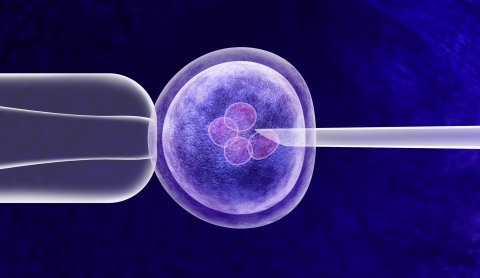
What effect, if any, do you think the recent Alabama Supreme Court ruling will have on the unregulated sperm market?
The Alabama Supreme Court ruling is already resulting in canceled embryo transfers and egg retrievals, and people who have already made embryos are not able to find companies willing to transport them to a state where transfers are possible. All of this is going to drive more people to the freelance sperm world, where regulations don't exist.





